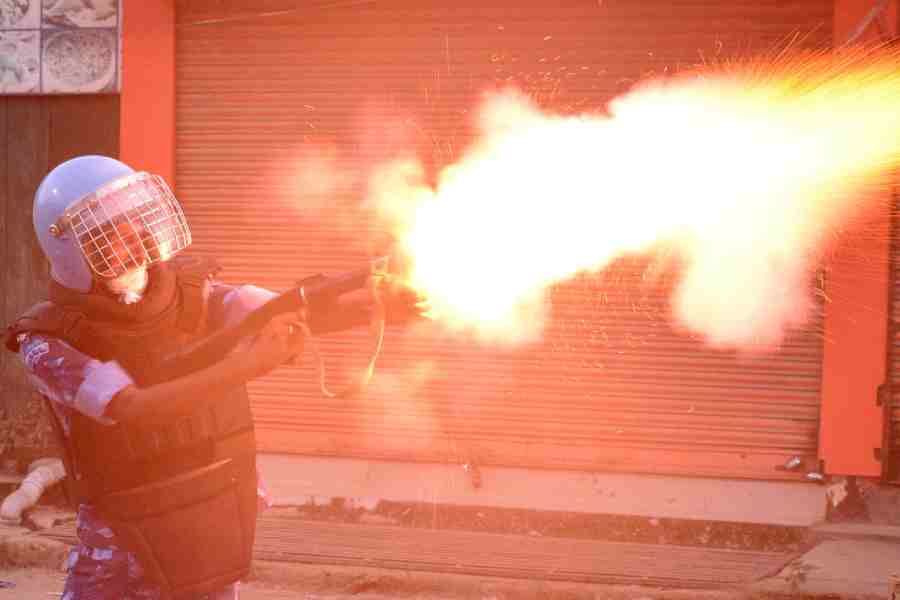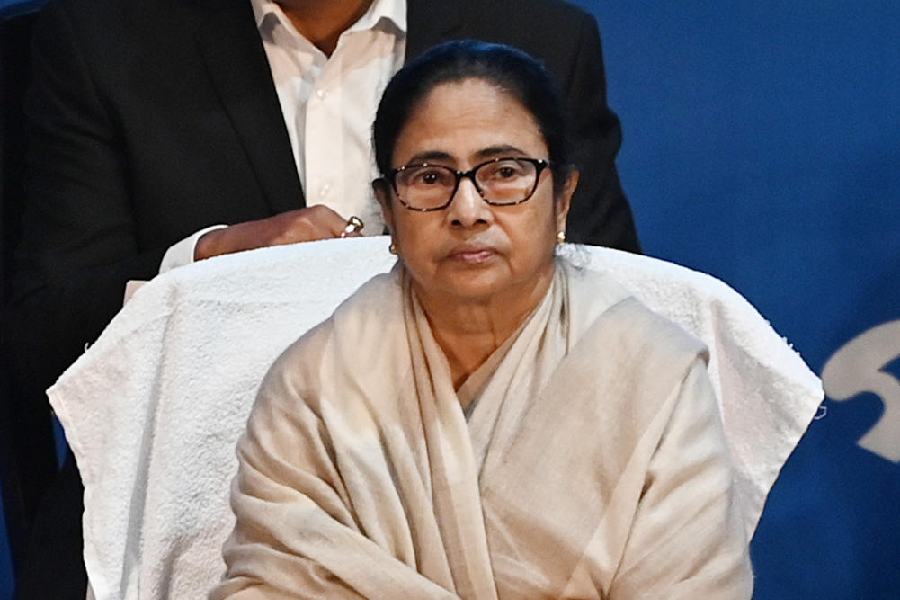The contentious Armed Forces (Special Powers) Act was extended for another six months in Manipur, except in areas covered by 19 police stations.
The exempt areas fall in Meitei-dominated stretches in the valley, which recorded more than 80 per cent of the 175-odd killings since May 3.
The AFSPA, which covered most of the state since 1980, was withdrawn from the jurisdictional areas of the same 19 police stations in Manipur on April 1. Multiple sources in the security establishment have blamed the decision for the unprecedented conflict that began in the state the very next month.
The AFSPA gives almost unfettered powers to the armed forces and the central armed police forces deployed in “disturbed areas” to shoot anyone breaking the law. Arrests and searches of premises can be executed without a warrant, and the armed forces are offered protection from prosecution.
A source in the security establishment told this newspaper that it would have been easier to achieve the objective of bringing the law-and-order situation under control in Manipur had the AFSPA been in force across the state.
“This suggestion was conveyed to the authorities repeatedly,” he added.
“The Manipur government, however, had its own logic while extending the AFSPA in a selective manner.”
A political observer in Manipur said that the decision to leave the Meitei areas out of the purview of the ASFPA was more political than a strategic one based on security considerations.
“The Lok Sabha elections are coming and the BJP wants to retain both the seats in Manipur to show its political clout.... That’s why the N. Biren Singh government is trying to keep the Meitei community in good humour. They also want to take the credit for removing the AFSPA from a part of Manipur and claim that they have brought the situation under control,” said the source.
An official notification said the state government was of the opinion after analysing the prevailing law-and-order situation that it was not expedient to have a detailed assessment on the ground as security agencies were preoccupied.
“Now, therefore, in exercise of the powers conferred by Section 3 of Armed Forces (Special Powers) Act... the Governor of Manipur hereby declares the entire state of Manipur excluding the areas falling under the jurisdiction of 19 police stations... as disturbed Area for a period of six months with effect from October 1, 2023,” the notification said.
The police station areas where the Disturbed Areas Act has not been imposed are Imphal, Lamphel, Imphal city, Singjamei, Sekmai, Lamsang, Pastol, Wangoi, Porompat, Heingang, Lamlai, Iribung, Leimakhong, Thoubal, Bishnupur, Nambol, Moirang, Kakchin and Jirbam.
The security establishment has been sending inputs to the Union home ministry on how some of the banned terror outfits like the People’s Liberation Army, United National Liberation Front, People’s Revolutionary Party of Kangleipak, Kangleipak Communist Party and the Kanglei Yaol Kanba Lup — made up mostly of members of the Meitei community — have been gathering cadres, arms and ammunition from their leadership based in Myanmar and expanding their base in the valley.
“Most of the operatives of these outfits in Manipur are primarily based in the valley. So, leaving the valley outside the purview of the AFSPA is not a prudent decision,” said a source.
“These banned terror outfits have a working relationship with the Myanmar military junta, which enjoys the blessings of China.... So, this is a matter of national security,” the source added.
The fact that the situation in Manipur has become a matter of national security was clear when the NIA arrested one Moirangthem Anand Singh from Imphal last week in a transnational conspiracy case.
A media release issued by the NIA on September 23 said that Anand Singh was involved in the conspiracy hatched by Myanmar-based terror outfits to wage a war against India by exploiting the current unrest in Manipur.
The NIA had also contended that the terror outfits have been recruiting overground workers, cadres and sympathisers to augment their strength and carry out attacks on security forces and opposite ethnic groups.
The Myanmar angle and the involvement of armed Meitei terrorists in recent incidents of violence are significant, said a source. “The banned Meitei outfits and Arambai Tengol recently destroyed some Kuki villages in the hill areas of Kangpokpi and Kamjong, which fall in the route from the Myanmar border and the Imphal valley, to ensure direct access to the borders.... There are inputs that vehicles are travelling to the borders to get arms and ammunition,” said the source.
“Over and above the smuggled arms and ammunition, more than 4,000 sophisticated arms and over 6 lakh rounds of ammunition are still in the hands of people, mostly the Meitei community.... So, this decision to leave out the 19 police station areas is puzzling,” added the source.
Although the hills in Manipur, inhabited by the tribal Kuki-Zo and Naga communities, are occasionally erupting, the situation there has improved significantly after Internet services resumed on July 24.
“The strife that began on May 3 derailed the process of ensuring lasting peace in the hills.... And we will have to bear the tag of ‘disturbed area’ for another six months,” said a Kuki leader who did not wish to be identified.
On May 3 — when the violence broke out — peace talks between the Government of India and the Kuki-Zo Suspension of Operation (SoO) groups were being held to finalise the political settlement. The two sides were about to finalise the draft political settlement on May 8 to find lasting peace in the hills.
“Had the violence not broken out on May 3, the political settlement would have been signed to fulfil the aspirations of the Kuki-Zo people in Manipur, leading to lasting peace. The peace dividend would have definitely led to the permanent lifting of the AFSPA from the hill areas of Manipur,” said the Kuki source.











